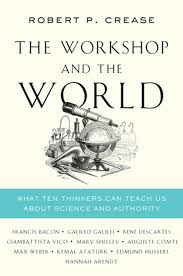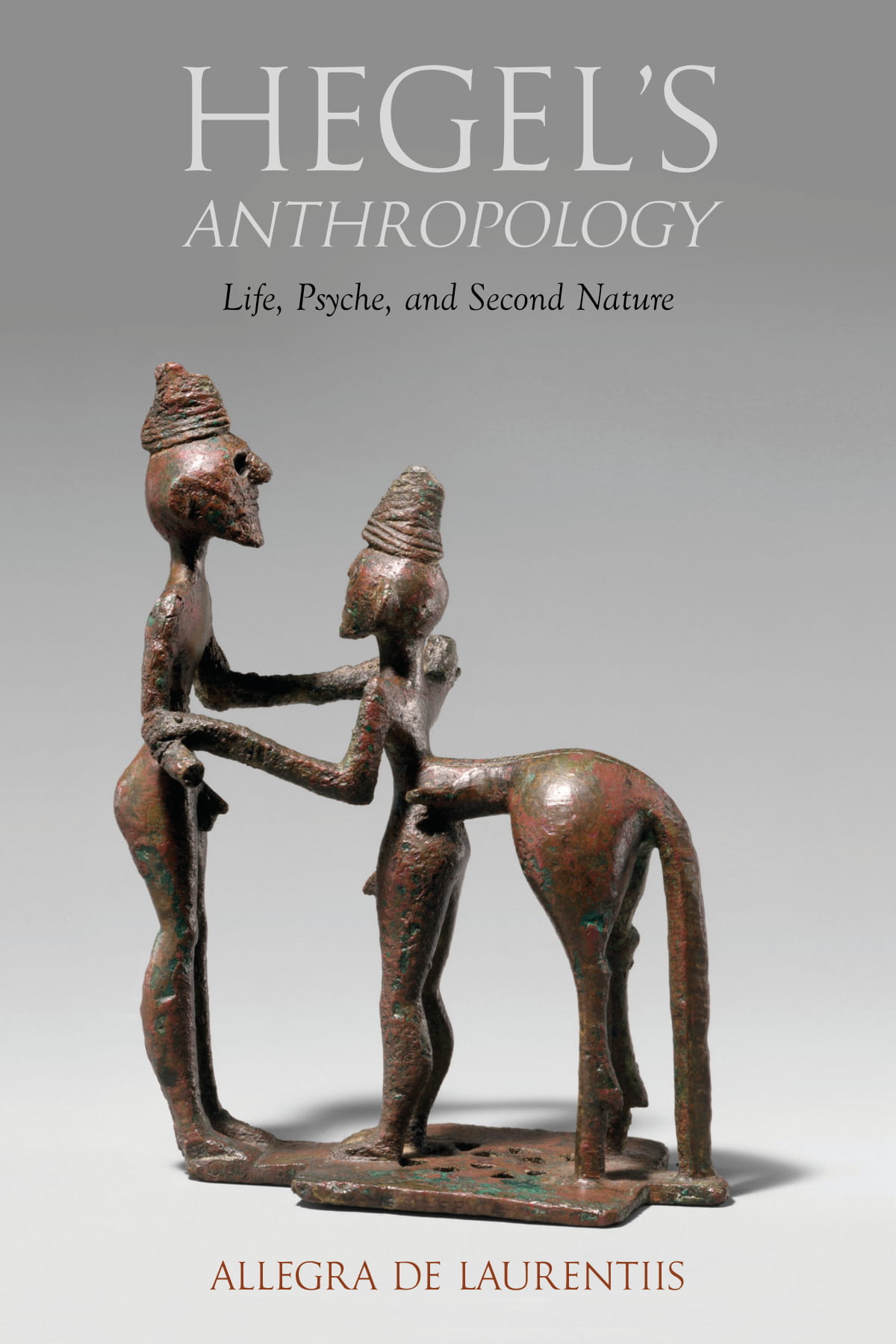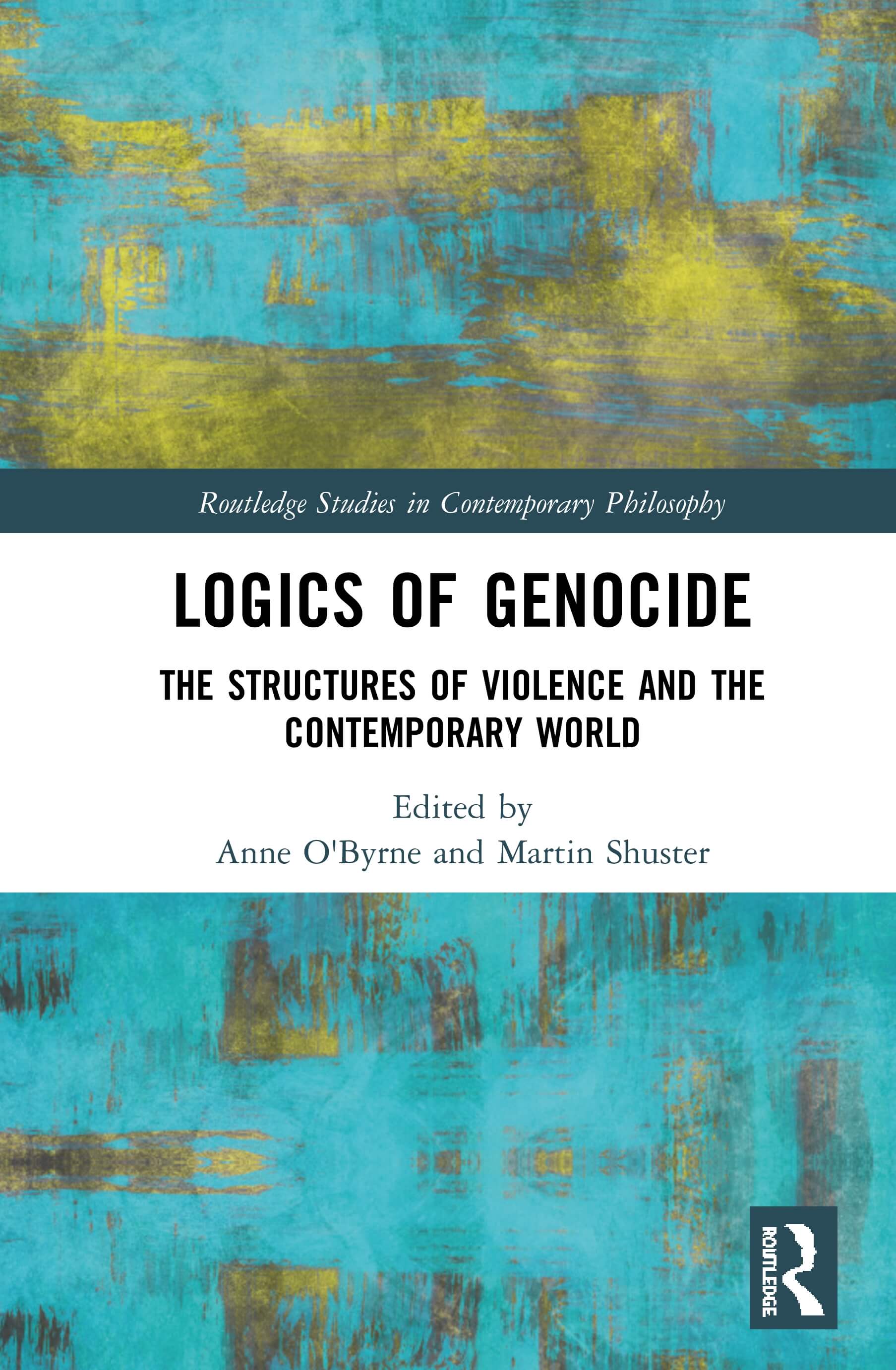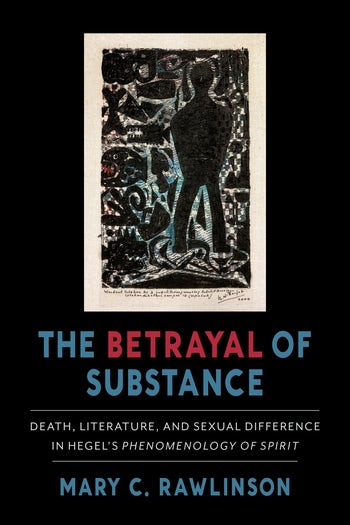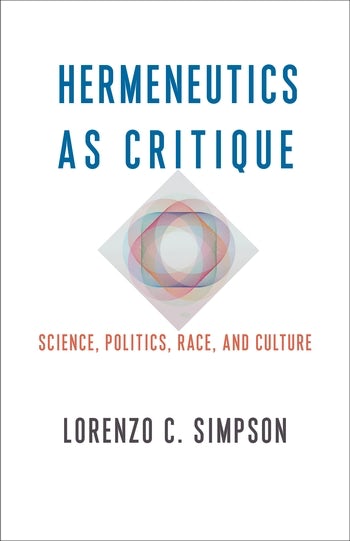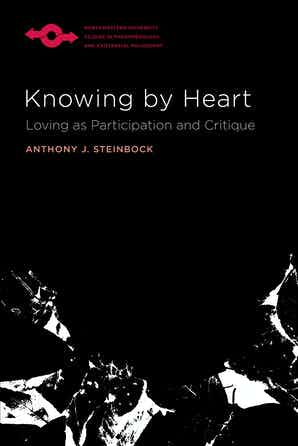Skip Navigation
Search
Faculty Books
- Turning Emotion Inside Out: Affective Life beyond the Subject
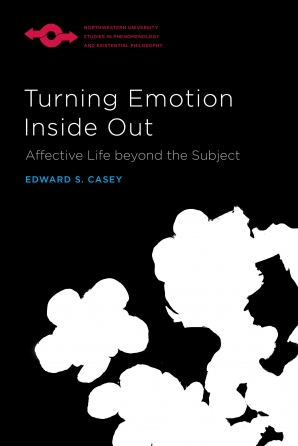 Prof. Ed Casey has just published Turning Emotion Inside Out: Affective Life beyond the Subject. He argues that many emotions do not stem from human subjectivity, as is too often assumed. They also derive from elsewhere: from human/animal relations as well as whole environments and atmospheres.
Prof. Ed Casey has just published Turning Emotion Inside Out: Affective Life beyond the Subject. He argues that many emotions do not stem from human subjectivity, as is too often assumed. They also derive from elsewhere: from human/animal relations as well as whole environments and atmospheres. - Language at the Boundaries Philosophy, Literature, and the Poetics of Culture
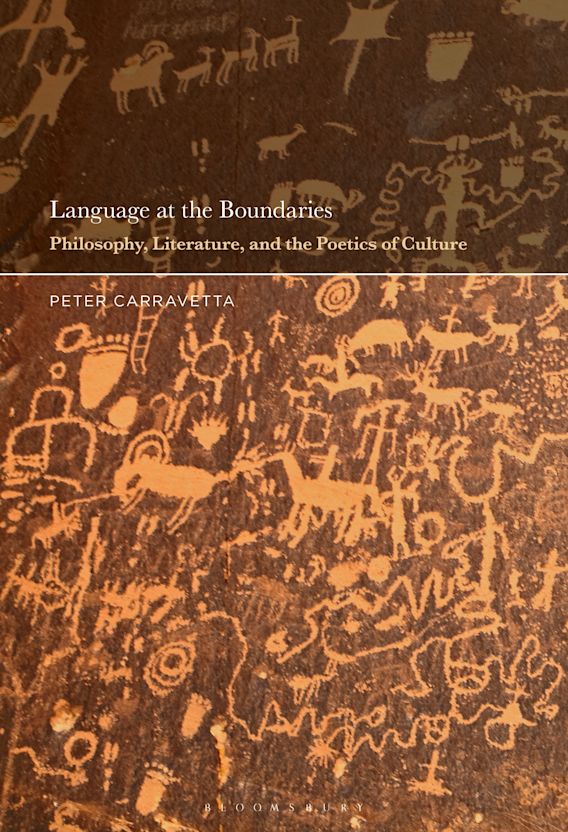 Peter Carravetta is Professor of Philosophy at Stony Brook University. His previous publications include After Identity: Migration, Critique, Italian American Culture (2017), The Elusive Hermes: Method, Discourse, Interpreting (2012), and Prefaces to the Diaphora: Rhetorics, Allegory, and the Interpretation of Postmodernity (1991).
Peter Carravetta is Professor of Philosophy at Stony Brook University. His previous publications include After Identity: Migration, Critique, Italian American Culture (2017), The Elusive Hermes: Method, Discourse, Interpreting (2012), and Prefaces to the Diaphora: Rhetorics, Allegory, and the Interpretation of Postmodernity (1991). - The Workshop and the World What ten thinkers can teach us about science and authority
- Hegel's Anthropology Life, Psyche, and Second NatureAllegra De Laurentiis is a professor of philosophy at Stony Brook University. She is the author of Subjects in the Ancient and Modern World: On Hegel’s Theory of Subjectivity, the editor of Hegel and Metaphysics: On Logic and Ontology in the System, and the coeditor of The Bloomsbury Companion to Hegel.
- Thinking Matters Critical Thinkers as Creative Problem Solvers
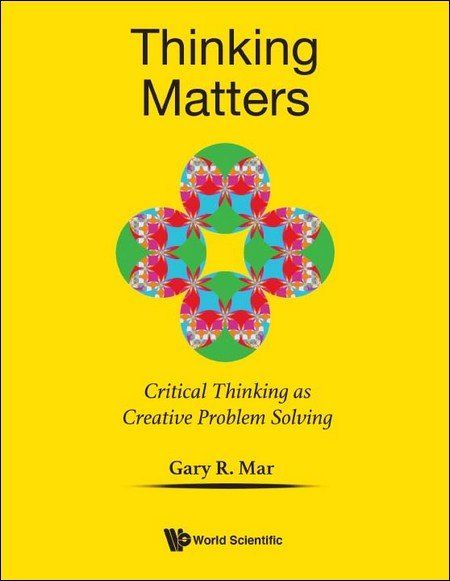 Gary R Mar was the last student to have a PhD directed by Alonzo Church and co-directed by the set-theorist Donald A Martin. Professor Mar is co-author with Donald Kalish and Richard Montague of Logic: Techniques of Formal Reasoning (second edition, Oxford University Press) and co-author with Patrick Grim and Paul St. Denis of The Philosophical Computer (MIT Press).
Gary R Mar was the last student to have a PhD directed by Alonzo Church and co-directed by the set-theorist Donald A Martin. Professor Mar is co-author with Donald Kalish and Richard Montague of Logic: Techniques of Formal Reasoning (second edition, Oxford University Press) and co-author with Patrick Grim and Paul St. Denis of The Philosophical Computer (MIT Press). - The Art of Conjecture Nicholas of Cusa on Knowledge
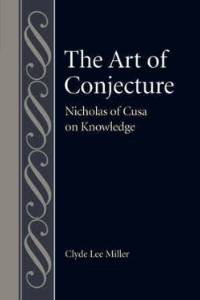 Clyde Lee Miller is a professor of philosophy at Stony Brook University. Following his earlier book, Reading Cusanus (The Catholic University of America Press, 2003), Clyde Lee Miller here examines and comments on the meaning of "conjecture" in Nicholas of Cusa.
Clyde Lee Miller is a professor of philosophy at Stony Brook University. Following his earlier book, Reading Cusanus (The Catholic University of America Press, 2003), Clyde Lee Miller here examines and comments on the meaning of "conjecture" in Nicholas of Cusa. - Logics of Genocide: The Structures of Violence and the Contemporary WorldAnne O’Byrne is Associate Professor of Philosophy at Stony Brook University. She is author of Natality and Finitude (2010), co-editor of Subjects and Simulations: Between Baudrillard and Lacoue-Labarthe (2014), translator of Jean-Luc Nancy’s Being Singular Plural and Corpus II, and author of numerous articles on politics, ontology, biology, and generational being.
- The Genocide Paradox Democracy and Generational Time
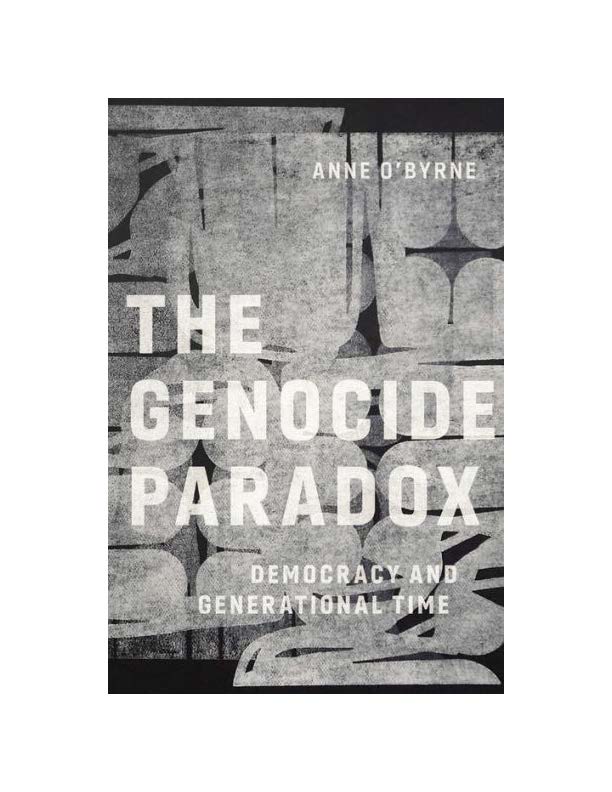 Anne O’Byrne is Associate Professor of Philosophy and Doctoral Program Director at Stony Brook University. Her work focuses on the political and ontological questions that arise from gendered embodiment and labor, including translations of Jean- Luc Nancy and writings ranging across the major Continental thinkers of the twentieth century and Julia Kristeva, as well as a sustained investment in Irish studies. She is currently working on a book on genocide and generation.
Anne O’Byrne is Associate Professor of Philosophy and Doctoral Program Director at Stony Brook University. Her work focuses on the political and ontological questions that arise from gendered embodiment and labor, including translations of Jean- Luc Nancy and writings ranging across the major Continental thinkers of the twentieth century and Julia Kristeva, as well as a sustained investment in Irish studies. She is currently working on a book on genocide and generation. - The Betrayal of Substance: Death, Literature, and Sexual Difference in Hegel’s “Phenomenology
of Spirit"Mary C. Rawlinson is professor of philosophy and director of graduate studies at Stony Brook University in New York and senior research fellow at the Institute for Advanced Studies, University College London. Her books include Just Life: Bioethics and the Future of Sexual Difference (Columbia, 2016).
- What Is Sexual Difference? Thinking with Irigaray
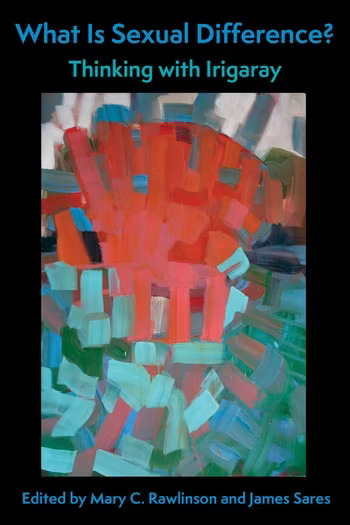 Professor emerita Mary C. Rawlinson and Stony Brook PhD James Sares edited What Is Sexual Difference? Thinking with Irigaray, just published by Columbia University Press. This book brings together leading scholars to consider the philosophical implications of Irigaray’s writing on sexual difference, particularly for issues of gender and race. The cover is by Stony Brook philosophy professor and artist Megan Craig.
Professor emerita Mary C. Rawlinson and Stony Brook PhD James Sares edited What Is Sexual Difference? Thinking with Irigaray, just published by Columbia University Press. This book brings together leading scholars to consider the philosophical implications of Irigaray’s writing on sexual difference, particularly for issues of gender and race. The cover is by Stony Brook philosophy professor and artist Megan Craig. - Hermeneutics as Critique Science, Politics, Race and CultureLorenzo C. Simpson is professor of philosophy at Stony Brook University. His books include Technology, Time, and the Conversations of Modernity (1995) and The Unfinished Project: Towards a Postmetaphysical Humanism (2001).Joint winner, 2022 Symposium Book Award, Canadian Society for Continental Philosophy
- Knowing by Heart Loving as Participation and Critique
- پدیدارشناسی و عرفان؛ عمودیت تجربهی دینی(Phenomenology and Mysticism: The Verticality
of Religious Experience in Farsi translation)
 Anthony J. Steinbock is a professor of philosophy at Stony Brook University. This book investigates the structure and evidence of religious experience using as models the mystics of the Abrahamic tradition. It suggests that the contemporary understanding of human experience must come from a fuller, more open view of religious experience.
Anthony J. Steinbock is a professor of philosophy at Stony Brook University. This book investigates the structure and evidence of religious experience using as models the mystics of the Abrahamic tradition. It suggests that the contemporary understanding of human experience must come from a fuller, more open view of religious experience. - Mundo Familiar Y Mundo Ajeno:Fenomenología Generativa tras Husserl (Home and Beyond:
Generative Phenomenology after Husserl in Spanish translation)
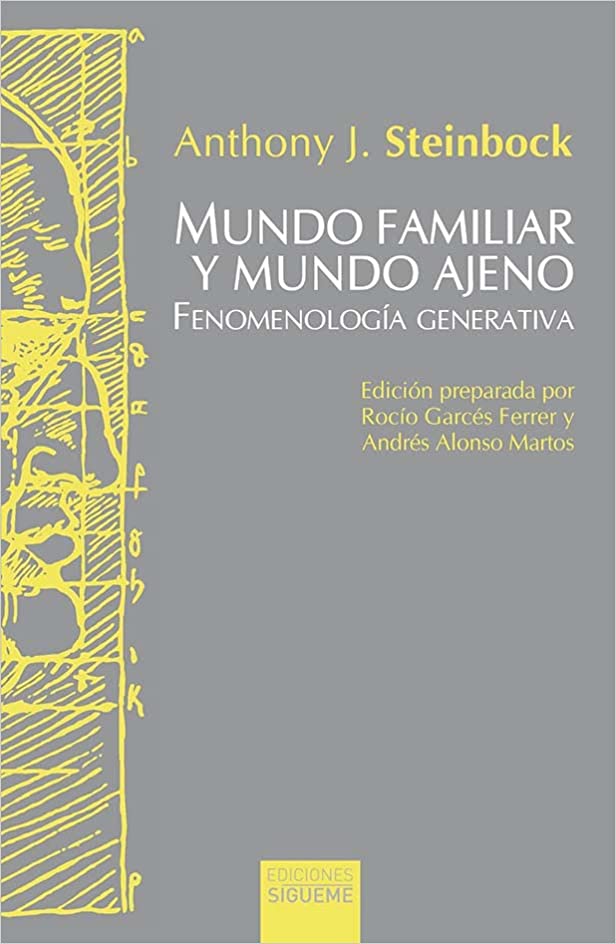 Anthony J. Steinbock is a professor of philosophy at Stony Brook University. This books advances a novel dimension of phenomenology from the thought of Edmund Husserl. It develops the geo-historical, normative, cultural, and social dimensions of the lifeworld, and describes the interrelation of being “home” and being “strangers” in our everyday experiences with one another.
Anthony J. Steinbock is a professor of philosophy at Stony Brook University. This books advances a novel dimension of phenomenology from the thought of Edmund Husserl. It develops the geo-historical, normative, cultural, and social dimensions of the lifeworld, and describes the interrelation of being “home” and being “strangers” in our everyday experiences with one another. - Emociones morales El clamor de la evidenciadesde el corazón (Moral Emotions: Reclaiming
the Evidence of the Heart in Spanish translation)
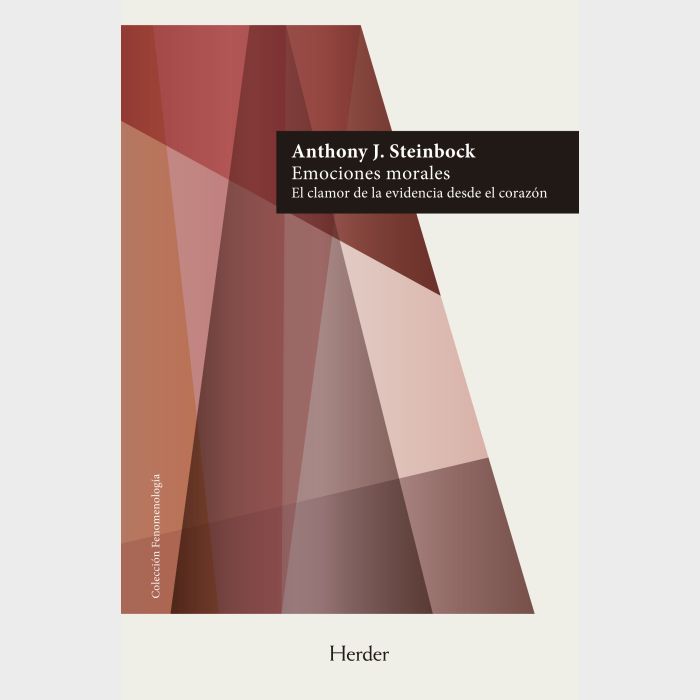 Anthony J. Steinbock is a professor of philosophy at Stony Brook University. This book describes the distinctive structures of the emotions and their unique kind of evidence of the heart. It portrays the indispensable role that the emotions play in our contemporary social imaginary as well as their importance for social, political, and environmental change.
Anthony J. Steinbock is a professor of philosophy at Stony Brook University. This book describes the distinctive structures of the emotions and their unique kind of evidence of the heart. It portrays the indispensable role that the emotions play in our contemporary social imaginary as well as their importance for social, political, and environmental change. - Phenomenology and Perspectives on the Heart
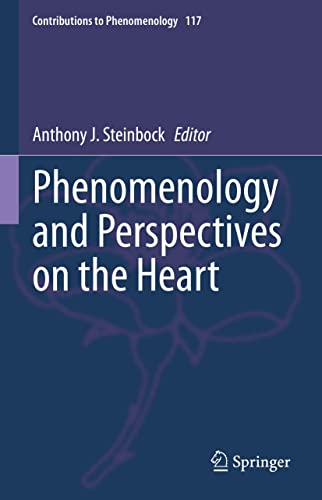 Anthony J. Steinbock is a professor of philosophy at Stony Brook University. This edited collection marks a new wave of international and philosophical scholarship on “the heart”—that rich dimension of our emotional being in the world. It addresses the relation between feeling and knowing, and investigates how the heart has its own way of cognition and critique.
Anthony J. Steinbock is a professor of philosophy at Stony Brook University. This edited collection marks a new wave of international and philosophical scholarship on “the heart”—that rich dimension of our emotional being in the world. It addresses the relation between feeling and knowing, and investigates how the heart has its own way of cognition and critique.

